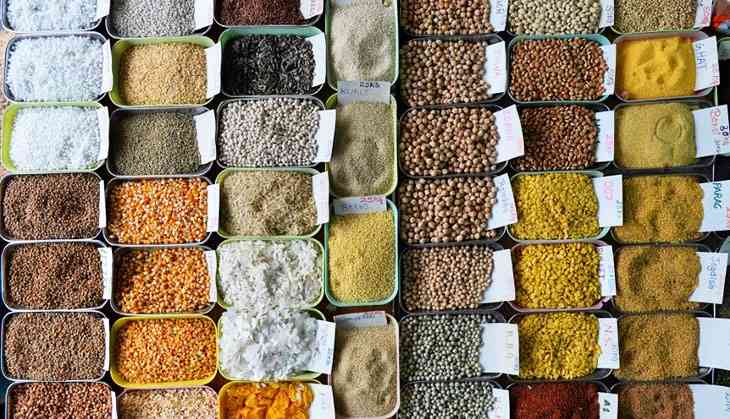GST proved to be a double whammy: Mumbai spice market traders talk about failing businesses

The Goods and Service Tax (GST) was brought in with much fanfare alongside claims that it would simplify the taxation system in the country with 'one nation, one tax'. But the ambiguities in the system have proved to be a major hurdle for businesses big and small.
The new tax regime, with its confusing structure, has badly hit the wholesale spices market in Mumbai, which is a major centre to export spices. The export business worth several crores has come down by 20% and domestic sale has dropped by 80%.
With overall business down at the spices market of the Agriculture Market Produce Committee (APMC), many traders have made their mind to pull down their shutters.
This does not include just the small players but also a few of the bigger fish in the market.
A double whammy
“The ambiguities on GST to be levied on exported goods have posed a major hurdle for us. There is no clarity on refund of the GST paid on the goods. The additional cost of 5% has hit our prospects in international market. We are not able to compete at international market. Our business has gone down drastically,” says a director of one of the major spices export houses in Mumbai.
"There is an overall slowdown in the spices business post GST. We are clueless about the provisions of GST. There is no clarity on how much GST would be levied on the goods exported from the market. It has hit the export business badly. Similarly, around 1200 small traders have landed in soup due to the new tax system,” said Amrish Barot, a spice trader in Mumbai APMC.
Barot is also supplier to export houses in Mumbai. According to him, the supplies to export houses have been reduced drastically post GST. There is 5% GST on spices exported out of country. This has increased the cost of Indian goods remarkably and made them incompetent in international markets.
“We face steep competition from countries like Pakistan, China, Syria, Mexico and Sri Lanka in the international spice market. With 5% GST on our goods, the final cost in the international market has gone up. Since prices of goods from these countries are less than our goods, there are no takers for spices from India. As a result, export has come down by 60% post GST. Traders who have already entered into export agreements with overseas buyers are finding it difficult to meet the demands as their price has gone up. Due to this, there had been no new export agreement since last three months,” Barot said.
Girish Brahmabhatt, former secretary of Exporters’ Federation said, “The GST has proved to be double whammy for us. We have to pay GST to suppliers as well as buyer. The GST rates on spices and food item export sector ranges from five to 28%. We have to bare it twice, this blocks our working capital. We have met the officials of finance ministry and demanded that GST on export should be abolished, since it has to be claimed in refund at a later date.”
According to Brahmabhutt, total spices export market is worth Rs 16,000 crore per annum and the business has seen a dip of around 20% over last three months.
Like the major players, small traders who survive on day to day business, too have suffered a lot.
“With the new tax system, I will have to avail services of a Chartered Accountant (CA) for filing my returns, which is an additional financial burden,” said Ajay Sakpal, a small trader from Spices Market. There are around 1,200 small traders like Ajay and 300 major traders like Amrish Barot. All of them are rapidly losing business. All of them blame it on GST.
“Majority of our buyers are from unorganised sector who mainly deal in cash. The small grocery shop owners make all the purchases on cash. Since we cannot accept cash more than Rs 10,000 our sale has gone down by 80%. If a trader buys one bag of say, red chilli, it costs around Rs 5000. Earlier he would buy ten bags, but now buys only two since he deals in cash,” said Ashok Agrawal, another spices trader from Mumbai APMC.
Edited by Aleesha Matharu
First published: 5 October 2017, 20:33 IST
